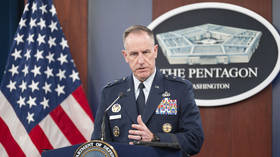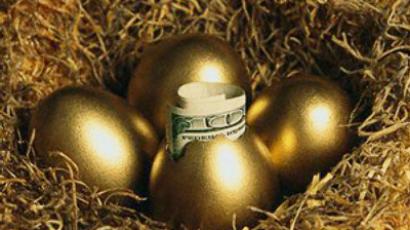Global stimulus wind back to put Russian economic drive in focus
The prospect of major economies winding back fiscal and monetary stimulus measures which have helped to minimize a global economic downturn, could place a drag on Russia’s economic recovery.
The World Bank says that the Russian economy should grow by 3.2% in 2010 after shrinking by 9% this year and passing through a particularly pernicious first half. Improving month on month and quarter on quarter data, have added to a strong rebound in crude prices – which remain Russia’s economic mainstay – and helped create the perception of a rebound.
Russian equities markets have similarly rebounded strongly after reaching their nadir in February, when the flight to safety was at its greatest, with the RTS up more than 180% to rank amongst the world best performing markets for the year. That has been part of a shift back towards engaging with risk by global investors, which has also helped spur along crude prices and other commodities Russia exports. That sentiment towards renewed economic vigor has also been buoyed by the rebound by the Rouble against the U.S. dollar – if not other currencies – as the latter has weakened through the course of the year, making the commodity prices in dollar terms higher still and boosting public spending power in dollar terms.
But the World Bank also believes the improved outlook in Russia is highly dependent on the global economy, and that the removal of economic stimulus by the U.S. EU and Japan could put the brakes on in Russia. It believes that Russia has benefitted from liquidity measures in the developed world which have seen key interest rates head to near zero, with investors borrowing to invest where rates are higher – like Russia – or in goods – like those Russia produces – for which there is likely to be demand when the global economy turns. In part, Russia’s seeming rebound, along with those of other emerging economies, and established commodity producers, is part of a global carry trade. Despite this, World Bank Economist for Europe and Central Asia, Sergey Ulatov, notes that Russia’s fiscal environment remains constrained and that there is little sign of the boost in prices feeding through to a more robust domestic economy.
“Russia’s recovery depends on recovery in the global economy. Lending within the country remains very tight despite all the government measures to encourage it – so there is no stimulus to internal demand.”
The Russian government is promising to continue its economic support measures, but the focus is now turning to when the stimulus measures of major global economies will begin to be wound back. The U.S Federal reserve this week has indicated it sees interest rates remaining where they are for the short to medium term. But in Europe the European Commission is looking to ease back from as early as next year according to Swedish Finance Minister, Anders Borg.
“We have reached a general understanding that it would be appropriate to start the fiscal exit, based obviously on further information. But if the development goes in line with Commission forecast the exit strategy should be implemented from, at the latest 2011, and that I think is a major step forward.”
The EU wind back is broadly in line with expectations of other major economies, and puts the ability of Russia to generate greater economic drive on its own into the spotlight. If it cannot do so it is likely that the recovery will be long and febrile, as buoyant hopes create new bubbles which burst on hard economic reality.













